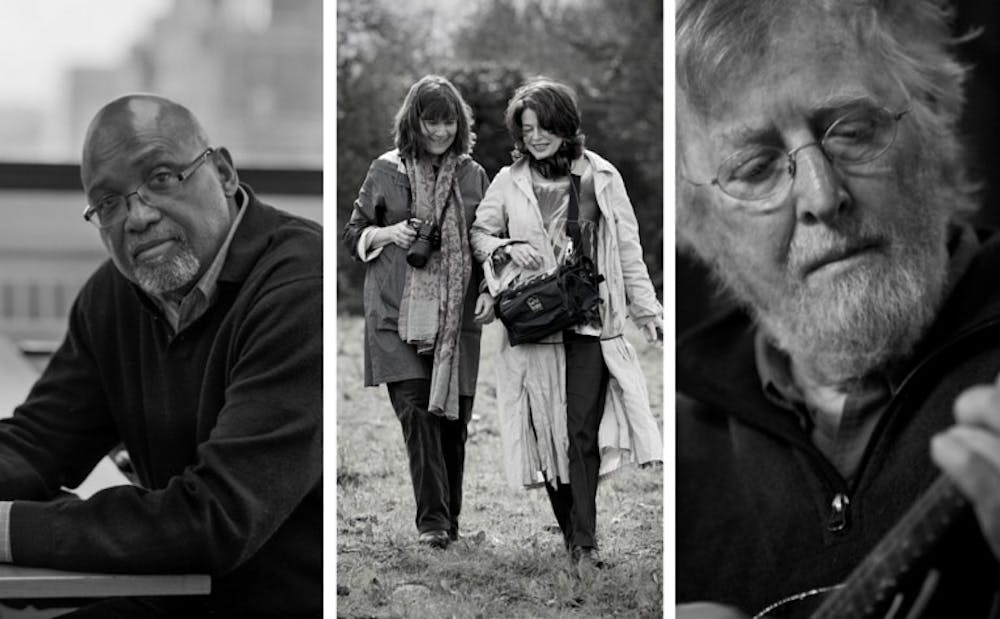In 1990, the Center for Documentary Studies opened its doors, becoming the first institution in the United States solely dedicated to documentary arts. Twenty five years later, the center is celebrating Documentary 2015: Origins and Inventions, a forum dedicated to looking at documentary today.
The event is held over three days, from Nov. 20 to Nov. 22, with a series of panels taking place each day. The panels cover a wide range of subjects, ranging from photography, to film and work, with the panelists coming from different locations across the continent. The attendees will include a combination of Duke students and faculty and locals from Durham and the greater Triangle area, as well as attendees from across the country. The Sunday panels focus specifically on how to teach documentary, both at the University and at other places of higher education.
“Documentary has always been about going out and making images of other people and recording stories of other people, and figuring out how the tools and ideas of documentary can be shared with as many people as possible is very key to the center’s work,” said Tom Rankin, former director of CDS and the current director of the MFA in Experimental and Documentary Arts.
In addition to the panels, the forum honors four contributors to the field of documentary arts in a special Saturday night celebration.
“We recognize people whose contribution has fundamentally shaped the way we think about documentary film, documentary writing, documentary audio. Each of our winners has had not only an enormously talented body of work, but that body of work has also dramatically shaped the discipline,” said CDS Director Wesley Hogan.
The honorees were chosen from the four distinct fields that CDS emphasizes—writing, audio, photography and film. Natasha Trethewey, the 19th Poet Laureate of the United States, was selected for her work focusing on what Hogan describes as “the haunted South.”
The Kitchen Sisters, producers of various audio shows including “Hidden Kitchens,” are recognized for their work in telling stories from individuals that otherwise would not have been heard.
John Cohen, a photographer, musician and filmmaker, is described by Hogan as “a poet of both the eye and the word.”
The center also chose to honor Samuel D. Pollard, a feature film and television-video editor, for his impact on the evolution of documentary film.
The panel provides an opportunity for all attendees to look at how documentary has evolved over the last 25 years and where the art form is headed, especially with the digital revolution that has taken place in the last decade.
“Documentary as a field took a very different turn when everyone could suddenly be a documentarian,” Hogan said, remarking that the use of camera phones has made it possible for anyone to record information and publish it.
In addition to allowing reflection on documentary as a whole, the forum also allows the Duke community to look back at how the Center for Documentary Studies has evolved, as well as where it is heading in the future.
The center was founded in 1989 through an endowment of $15 million from the Lyndhurst Foundation, which allowed the center to bring in visiting artists, employ expert faculty and to host exhibitions relating to documentary. The center was moved to its current location at the Bridges House on West Pettigrew Street in 1994. Over the past 25 years, the center has started a number of new initiatives, including the Full Frame Documentary Film Festival, continuing education classes and the Master of Fine Arts in Experimental and Documentary Arts program.
In the future, the center will focus on combining traditional documentary practices with the new technology that has surfaced with the digital revolution.
“What we try to do is use these past teachings and writings and advances about documentary aesthetics and ethics to give people context in this very strange new world where anyone who has access to social media has a new platform to publish,” Hogan said.
Hogan also remarked on the importance of strengthening the network of documentarians across the country, and that the forum will help develop face-to-face relationships among various artists.
Rankin noted how the center will focus more and more on how documentary can play a unique role in higher education.
“This is a place where people make stuff, not just study things that have already been made,” Rankin said.
Get The Chronicle straight to your inbox
Signup for our weekly newsletter. Cancel at any time.

